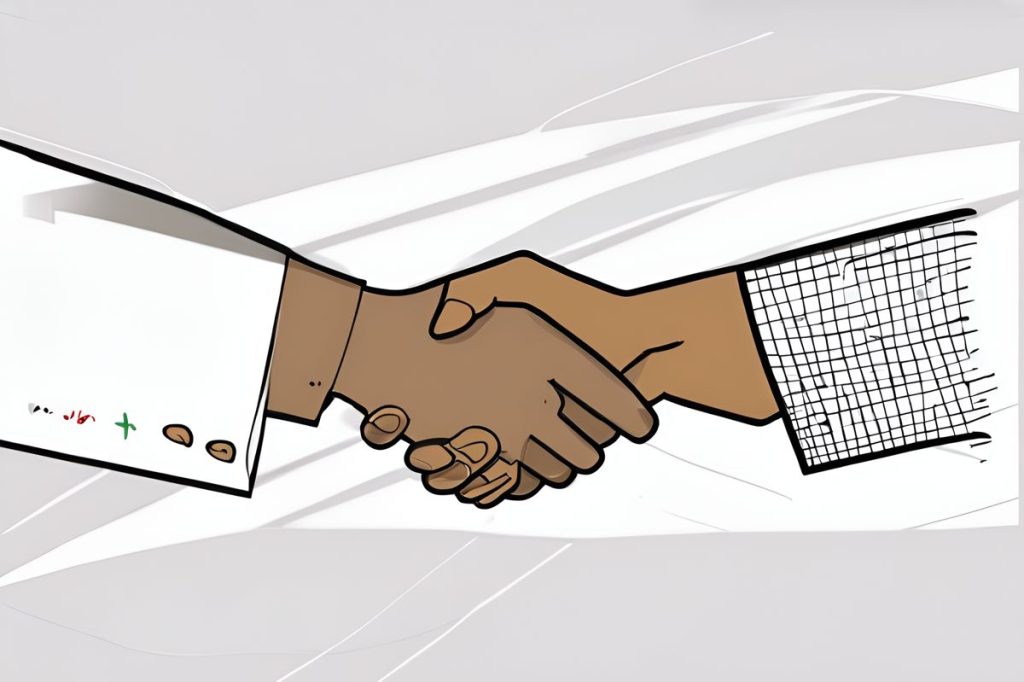The EU-Egypt strategic partnership agreement, sealed at a landmark summit in Cyprus, aims to bolster collaboration in renewable energy, trade, and security while offering a €7.4 billion financial lifeline to Egypt’s economy. This pivotal alliance not only seeks to fortify regional stability and manage migration but also aims to strengthen ties in the Eastern Mediterranean and Middle East, ushering in a new era of cooperation and shared prosperity.
What is the EU-Egypt strategic partnership agreement about?
The EU-Egypt strategic partnership agreement aims to enhance collaboration in renewable energy, trade, security, and provides a €7.4 billion financial package to support Egypt’s economy. This partnership seeks to foster regional stability, manage migration, and strengthen geopolitical ties in the Eastern Mediterranean and Middle East.
A Landmark Summit
Over the weekend, Cyprus played host to an event of significant geopolitical consequence. EU leaders, including the European Commission President Ursula von der Leyen, gathered in Cairo with Egyptian President Abdel Fattah al-Sisi. Not merely a routine meeting, this summit marked the commence of a new epoch in the EU-Egypt relationship. The assembly included not just President Nikos Christodoulides but also the Italian, Greek, Austrian, and Belgian prime ministers. Their presence underscored the magnitude of the discussions, which culminated in a promising declaration of cooperation.
The summit’s outcomes were substantial. An agreement was reached that would see the EU-Egypt partnership elevated to a ‘strategic partnership’ level. This partnership is designed to enhance collaboration across various spheres, such as renewable energy, trade, and security. Moreover, this initiative aims to offer financial support to Egypt’s economy over the next three years, which has been experiencing challenges of late.
Economic Synergy and Stability
In a financial package worth €7.4 billion, the EU has demonstrated its investment in Egypt’s future. The package is a blend of grants and loans, with €5 billion earmarked as concessional loans and €1.8 billion set for investments. The remaining €600 million is allocated as grants, including €200 million specifically dedicated to migration management. This investment is not only a gesture of goodwill but also a strategic move to foster economic stability in the region and mitigate migrant flows to Europe.
Egypt’s geopolitical importance surged into the spotlight with its mediation efforts in the Gaza conflict and its role in managing the humanitarian crisis in neighboring Sudan. Egypt has been pivotal in stemming irregular migration along its northern coast since 2016, though the surge of Egyptians attempting to cross to Europe via Libya remains a concern. The EU acknowledges these efforts and supports initiatives to curtail migratory pressures.
Regional Cooperation and Peace
The partnership heralded by the European Union and Egypt is built on a shared vision: a peaceful Eastern Mediterranean and Middle East. This common goal is not just rhetoric; it reflects in practical engagement. Egypt’s President Sisi has been instrumental in seeking a ceasefire in Gaza, striving to arrest the spread of conflict and provide relief to civilians caught in the crossfire.
Cyprus’s President Christodoulides highlighted the significance of Egypt as a cornerstone of regional stability. He expressed pride in the realization of a strategic partnership with the EU, an initiative Cyprus has long championed. The rewards of this partnership are poised to extend beyond mere economic ties, fostering a geopolitical landscape conducive to peace and collaboration.
Migration and Humanitarian Concerns
A portion of the EU’s financial commitment is directed at managing migration, a challenging issue for both Egypt and the EU. Crete and Gavdos, Greek islands situated near Egypt, have recently seen an uptick in migrant arrivals, a phenomenon that has raised alarms over potential new smuggling routes across the Mediterranean.
Human rights activists have voiced concerns about Western support for President Sisi’s government, especially given the human rights record post the overthrow of Egypt’s first democratically elected leader. The government’s crackdown on dissidents and the expansion of state and military control over the economy have been contentious issues, which some argue hinder needed structural reforms.
In navigating these complex waters, the EU’s engagement with Egypt is a delicate balance of geopolitics, economics, and humanitarian concerns, reflecting a multifaceted approach to international relations and regional stability.
What is the significance of the EU-Egypt strategic partnership agreement?
The EU-Egypt strategic partnership agreement aims to enhance collaboration in renewable energy, trade, security, and provides a €7.4 billion financial package to support Egypt’s economy. This partnership seeks to foster regional stability, manage migration, and strengthen geopolitical ties in the Eastern Mediterranean and Middle East.
What was the outcome of the landmark summit in Cyprus between EU leaders and Egyptian President Abdel Fattah al-Sisi?
The landmark summit in Cyprus resulted in the elevation of the EU-Egypt partnership to a ‘strategic partnership’ level. This partnership aims to increase cooperation in renewable energy, trade, security, and offers a substantial financial package of €7.4 billion to support Egypt’s economy over three years.
How does the EU’s financial package to Egypt demonstrate its commitment to economic stability in the region?
The EU’s financial package to Egypt, totaling €7.4 billion, includes grants and loans for various purposes. With a significant portion allocated to grants for migration management, the investment is not only a show of goodwill but also a strategic move to promote economic stability in the region and address migrant flows towards Europe.
What are some of the challenges and concerns related to migration and human rights in the context of the EU-Egypt partnership?
Challenges related to migration include the potential emergence of new smuggling routes in the Mediterranean, with concerns raised about human rights issues in Egypt. Activists have criticized Western support for President Sisi’s government, citing crackdowns on dissidents and increased state control as hindrances to needed structural reforms. The EU’s engagement with Egypt reflects a complex balance of geopolitics, economics, and humanitarian concerns.

